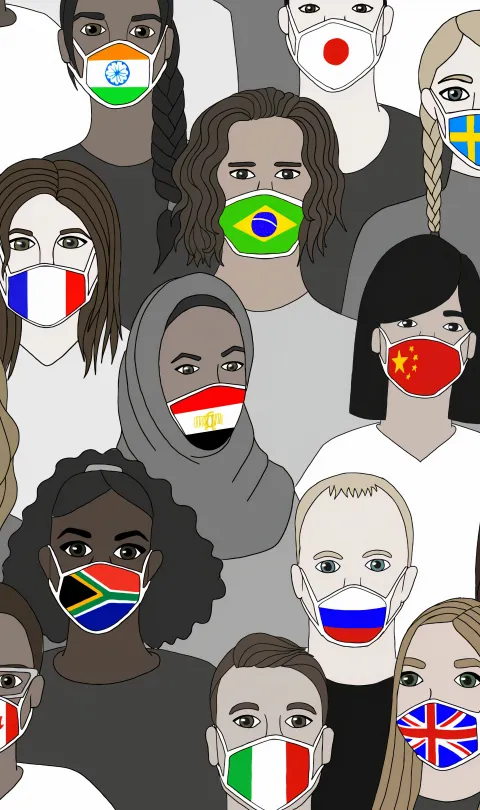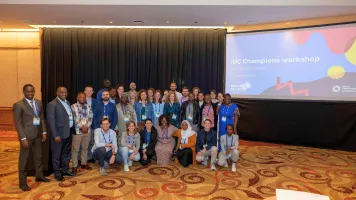Five years on from the launch of the Global Goals, millions of marginalized people remain invisible in official data and statistics. As incomplete data continues to inform policies, we move further away from realizing our collective promise to leave no one behind. On today, the Day of Factivism, we urge governments and organizations to consider who is missing in their data and why, and commit to making their data more inclusive, accurate, and timely.
The COVID-19 pandemic has shone a spotlight on the importance of going beyond averages and disaggregating data to understand inequities and disparities. Governments and organizations have rapidly tested new, more inclusive approaches to data collection and analysis to understand and mitigate the worst effects of the pandemic.
But action on inclusive data must outlive the pandemic. For decades, marginalized people have been uncounted by censuses, unreached by household surveys, and untouched by civil registration systems. With ten years to go until 2030, we need long-term plans and concerted action to put inclusivity at the heart of data systems.
Through the Inclusive Data Charter (IDC), we’ve seen governments, civil society, and multilaterals make impressive progress by setting clear goals, sustaining commitments, and learning and sharing openly. As others begin to take more strategic action on inclusive data, five learnings from the IDC network can inform their thinking:
- More inclusive data systems require bold leadership. Meaningful action on inclusive data requires us to innovate and allocate resources differently. It requires leaders who will set ambitious goals and persevere through challenges. From Sightsavers to the UK Government, senior internal leaders who continually champion inclusive data have vastly increased and sustained broad-based support and action. Leadership doesn’t happen in a vacuum, as we saw at the 2018 Global Disability Summit when the World Bank, the Kenyan government, and others committed to improving disability disaggregated data.
- Intersectionality is critical for more equitable policymaking. We need more nuanced data looking across multiple characteristics - such as race, economic status, gender, and disability - to understand and tackle inequalities. From Data2X to the Internal Displacement Monitoring Center and Colombia’s National Administrative Department of Statistics, diverse organizations are advancing intersectionality in data and sharing their learnings.
- Joining up data across agencies is key to strengthening inclusive data collection. Globally, we are producing more data than ever before, but too often, this data is fragmented across departments and organizations. Bringing together existing data sets will allow us to understand marginalized people’s lives and identify the most critical data gaps. To improve data on peoples with disabilities, the Kenya National Bureau of Statistics is convening a multi-stakeholder technical working group to identify different disability data sources and improve interoperability.
- Data protection and privacy cannot be overlooked. The increasing demand for more timely and inclusive data needs to be balanced against data protection and privacy risks. UNFPA, UN Women, and others published guidance on when and how it is appropriate to collect gender-based violence data during the pandemic. Can existing data be used? Can we guarantee confidentiality? These are questions that should be asked before any data collection.
- Data must be used to inform decision making. Too often, policy and program decisions are made using inaccurate data, or without any data at all. This has to change. The UK Office of National Statistics (ONS) has improved data usage by policymakers by working more closely with the central government on policy discussions, with the national statistician participating in the Government’s Scientific Advisory Group for Emergencies. By collecting and using inclusive data, the Ministry of Basic and Senior Secondary Education in Sierra Leone now better understands and serves marginalized groups in the education system, including girls and children with disabilities.
Towards a more inclusive future
The world as we know it has changed in recent months. We have seen the power of public scrutiny to push governments to make data more inclusive. Inequalities and injustices - and the need to challenge the systems and structures that perpetuate them - are now part of everyday conversations. And awareness of how data can distort or hide these issues has skyrocketed. The public scrutiny of data must continue; it is vital to holding governments accountable and demanding transparent and inclusive data.
Ultimately, data systems will only become more inclusive if governments, citizens, civil society, and multilaterals work together. With only a decade to deliver the 2030 Global Goals, we must all work to make sure that the invisible become more visible in data and that this data drives more inclusive policies so that no one is left behind. The time for all of us to take action is now. The clock is ticking.
To add your voice to the Factivism movement, visit globalgoals.org/factivism

